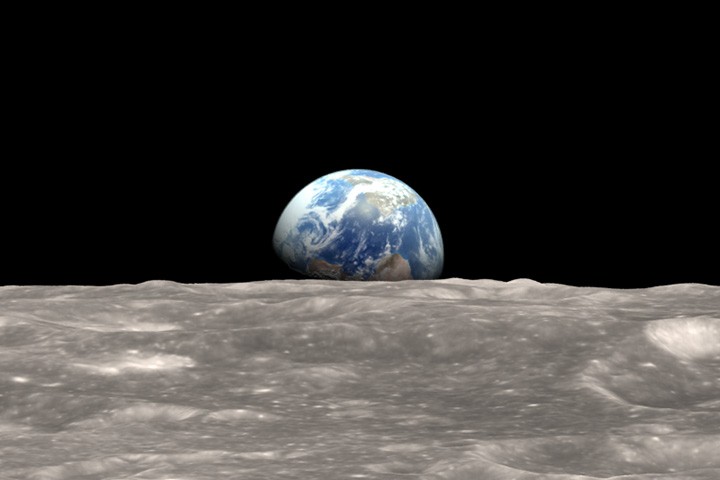- Nessun prodotto nel carrello
By Francesco Lolli
This 22nd March the 27th World Water Day will be celebrated since in 1992 it was established following the agreements of Agenda 21 as a moment of reflection, reporting and updating in terms of water resources and pollution by the Signatories of this historian (and now forgotten) congress.

Water was the meeting point of growth of the first communities, which could not survive without it and water was the first highway to discover new worlds. Poseidon has always been the God of the unknown and of adventure, of tragedy and possibilities, while fresh water is synonymous with life and safety: our most vital and precious good and the possibility of settling sedentarily, raising and irrigating fields, grow.
On December 24th 1968 the Apollo 13 men took the first photograph taken from the space of our planet, with few clouds and the sun illuminating it by three quarters, which will become famous with the name of Earthrise: the “coming” of the earth, and it was perceived for the first time as this was blue, like the sea and not the earth or man was the predominant and characterizing element of the planet, in a splendid and dazzling perceptive repositioning of our existence, of the soil that we have available compared to the vastness of the planet.
Of all this water 97% is found in the seas, 2.1% in the polar ice caps (for now) and only 0.9% in rivers, lakes, glaciers and is sweet, unsalted and useful to humans and the terrestrial life of the planet relies on this ” laughable ” percentage.
Scientifically, the amount of water consumed by a population or a single individual is defined as a water footprint, which affects the resources available to them and the needs or sectors from which it is consumed, and is an increasingly unstable equilibrium.
Before the twentieth century there were no major water crises as water consumption and the impact of populations on it was limited to subsistence, guaranteeing a natural environmental balance in all regions of the planet. Even in the African deserts the water was rare, it was sufficient thanks to small and rudimentary tricks to sustain the nomadic populations that lived there.
The industrialization and dispersion of polluting gases in the atmosphere, starting from the first coal-fired industries up to today where the big industry, the engines and the chemical and transport revolution have saturated the atmosphere, have contributed to raising the temperature world and gave way to this Global Warming which is, together with the use for the food and non-food industry (75% of the fresh water is used for animal husbandry and agriculture) responsible for the water crisis we are facing and that has already seen manifest in the following decades.

From the water we are born and from the water we bring life. We see that it is so much and it becomes difficult to worry about it. But you need to.


